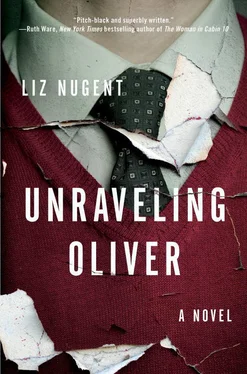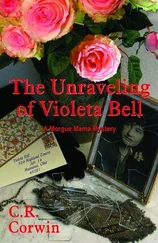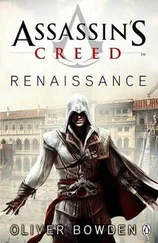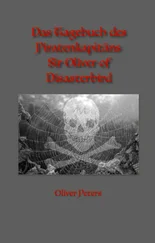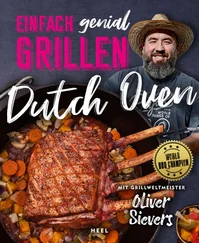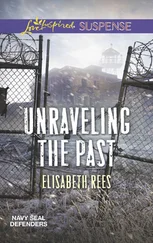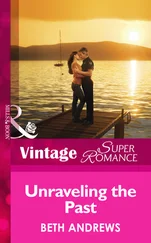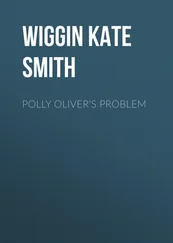I put the letter aside. I left my room and wandered out to the yard. The guard smiled and nodded.
“And how’s Oliver today? It’s a cold one, eh?”
“Do you have a cigarette?”
“Indeed and I do.”
He handed me a cigarette, solicitously lit it for me, and tried to engage in some light banter, but I am known as a loner, so he soon stepped away to leave me to my customary solitude.
Father Daniel was right about everything. The story about my father and the native girl was true. What became of her and what was she like? I have an image of her in my mind, dressed in tribal clothing, walking away from her village and her life into an African sunset, thinking herself cursed by my birth. I find myself weeping for her at odd moments and, strangely, missing her, and wondering if she ever missed me. I think of my father and imagine his public humiliation when I was born, caught in his lie of denial, and I feel a small degree of pity for him.
Then I think of Laura, and how confused she must have been by her child. Who would have believed that I was the father? Certainly not me. This is why she could not send me a photograph and why she could never have brought her baby home, not in those days. How could she have explained her baby’s paternity? She must have questioned her own sanity. There was a kind of accepted racism at the time among the Irish middle classes. It went unacknowledged because it never had to be confronted. In Ireland in 1974, I could count on one hand the number of black people I had ever seen. Laura’s child would have created a scandal for her family. Also, it was one thing to be an unmarried mother, but another thing altogether to be a single unmarried mother with a black child she had no way of explaining. I did that to Laura. I made her think she was insane. I killed her.
• • •
My daughter Annalise came to visit me today. She is beautiful like her mother and, I suppose, like my mother and, in a strange way, like me. It is some kind of genetic accident that I was born white, but this girl is undoubtedly mine. Mine and Laura’s. I still had the slimmest doubts right up until the moment I saw her. She has the same clear blue eyes and the sense of vibrancy and purpose that Laura had when I first met her, but her skin color comes from my mother, via me.
It was awkward at first, but I used my old charm to put her at her ease until the atmosphere was at least cordial. I made inquiries about her son, my grandchild , and she showed me a photograph of a small boy, perhaps two years old, sitting between her and her husband. He has a mischievous smile on his face and I can tell he is happy. I am glad. I asked her if she was happy, and she grinned quickly and ducked her blue eyes.
She sat opposite me, and I watched as she nervously buttoned and unbuttoned the cuffs of her expensive silk blouse, and I didn’t want to deny the truth to myself any longer.
I could, however, deny it to her.
I admitted that I knew Laura well, that we had dated in college, and that we had spent a summer together in Bordeaux. I told Annalise that her mother was brave and beautiful and would have desperately wanted to keep her. I denied knowing that Laura was ever pregnant and could not explain why she might have named me as the father. I said that there were some South African workers at the vineyard in the summer of 1973 and implied that Laura must have had a liaison with one of them. I recalled them as good, strong, and cheerful boys but regretted I could not remember their names.
I told her that there would be no point in doing a DNA test. I told her all about my parents, Mary (née Murphy) and Francis Ryan. I even recalled for her my earliest memory: I am sitting on my father’s knee in a large garden while my laughing parents embrace each other on a bench. We are the only people in my world. My mother has red hair; she wears spectacles and lipstick. My smiling father is in a high-waisted suit. The bench is under a tree. One of the boughs of the tree hangs low and heavy with blossoms over my father’s head. My mother carries me over and puts me into a swing. There is a safety bar across it. She pushes me gently, and I laugh because I like the feeling of the air rushing through my stomach. I want her to push me a little higher, but she is afraid to do so. My father takes over the pushing and she goes back to the bench to sit down. My father pushes me higher and I am thrilled. After a little while, I use my feet as brakes. I feel the gravel and note a cloud of dust rising. I run over to my mum and jump into her lap. She hugs me close to her, and I know that my father is watching with pride. I am warm and safe.
I told Annalise about how my mother left us some years later, and how my father remarried a woman who didn’t want to raise me. I feigned sorrow. I said I didn’t like to talk about it. Annalise was sympathetic and did not press for details. I explained about how I was raised in a boarding school.
“I’m afraid there is no mystery, and that you have had a wasted journey.”
I wished her luck with her continued search.
She seemed relieved, I think. Happy to know that, after all, her father was not the monster who sat before her. We shook hands. Her hand was warm in mine.
I have destroyed enough lives. She is better off not knowing. This, finally, is a secret I am proud of keeping. Protecting her is an act of unselfish generosity. I try to be good.
Ifeel blessed and honored to be published by Scout Press and championed by all those at Simon & Schuster, but most particular thanks to Jackie Cantor, who really wanted to unravel Oliver in the United States and to become his, and my, champion. Huge gratitude also to Louise Burke and Jen Bergstrom for trusting Jackie’s instincts; to Jennifer Robinson and Liz Psaltis and their publicity and marketing teams, including the wonderful publicist Meagan Harris, for bringing this book to your attention; to Lisa Litwack, who has made such a handsome-looking book out of my tumble of words; to production editor Chelsea Cohen; and to Marla Daniels, for coping with all of the unknown unknowns along the way.
Heartfelt thanks to Marianne Gunn O’Connor, my agent, who deserves her excellent reputation for incredible support; to Vicky Satlow, for her determination on my behalf; and to Pat Lynch for making it all count.
An unpayable debt of gratitude to Patricia Deevy, my original editor at Penguin Ireland, for shaping this sow’s ear into a more silken-like purse.
Sincere gratitude for expert research advice from:
Mark Shriver Ph.D., Professor of Anthropology and Genetics at Pennsylvania State University; David MacHugh Ph.D., Associate Professor of Genomics at University College Dublin; and Kieran Gaffney, Charge Care Officer at the Central Mental Hospital, Dublin.
Thank you to Duchess Goldblatt and her loyal devotees, to Benjamin Dreyer, to early readers Shaileen Kelly Landsberg and Anne Heausler. I am also very grateful to Alison McKenna and Culture Ireland for bringing me to the Lincoln Centre Library for the Performing Arts, NYC, as part of Salon Eire in 2016 before I was published in the United States. That’s faith!
To my eight siblings, my in-laws, and all of their current and former partners, I value you as friends as much as family, and your support means everything. To my wonderful mother, who sacrificed so much to get us here.
To my husband, Richard McCullough, I adore you. x
LIZ NUGENT has worked in Irish film, theater, and television for most of her adult life. She is an award-winning writer of radio and television drama and has written critically acclaimed short stories for both children and adults. Unraveling Oliver, her fiction debut, was named Crime Novel of the Year by the Irish Book Awards. She lives in Dublin.
Читать дальше
